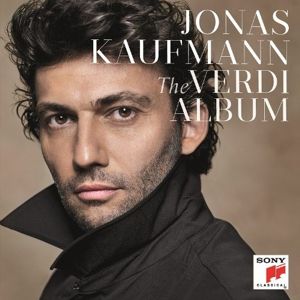|
|
|
|
|
|
|
|
|
St.Louis Public Radio, December 9, 2013
|
| By Lloyd Schwartz |
|
|
|
Review: Jonas Kaufmann Sings Wagner And Verdi |
|
|
Audio on St.Louis Public Radio |
| |
 Transcript Transcript
TERRY GROSS, HOST:
This is FRESH AIR. At 44, the German tenor
Jonas Kaufmann may be the most popular tenor of his generation and one of
the most versatile. Music critic Lloyd Schwartz reviews two of his
recordings this year, dedicated to both Verdi and Wagner, celebrating the
bicentennials of their birth.
(SOUNDBITE OF MUSIC)
LLOYD
SCHWARTZ, BYLINE: I've never heard Jonas Kaufmann in person, though I've
seen him in several leading roles in the Metropolitan Opera's live
telecasts. I was especially moved by his Parsifal, the innocent who some
five hours later finally achieves spiritual purification. Kaufmann has
everything going for him - a ringing tone, striking good looks, and
expressive power. I don't really know how big his voice is because I've
heard it only through electronic amplification.
But from all other
evidence, he's the real thing. This year he devoted two albums to the two
major opposing forces of 19th century opera, both born 200 years ago: the
earthy, political Verdi steeped in the tradition of Italian opera, whose
heart and soul lay in soaring arches of melody, and the intellectual and
psycho-spiritual Wagner, who changed the entire tradition of operatic form.
Wagner is a natural for Kaufmann. German is his native language and the
heft of his voice, at least on recordings, makes him sound like the true
Wagnerian heroic tenor. Kaufmann's Wagner CD is vividly conducted by one of
the world's leading Wagnerians - the Scottish conductor David Runnicles(ph).
Kaufmann sings not only familiar operatic solos but also Wagner's song
cycle the Wesendonck Songs, which is usually sung by a woman. He sensitively
balances large scale singing with intimate personal feeling. One of my
favorite tracks on the CD is the soulful prayer from Wagner's relatively
obscure third opera, "Rienzi," an epic about Medieval Rome.
Wagner
wrote it before he started to shy away from the Italian opera tradition of
aria and recitative. Soon he became interested in a more seamless blending
of solo music into complex dramatic scenes. The character Rienzi is a
plebian who becomes the popular leader of Rome. His rise to power is
short-lived. He sings this moving prayer just before his terrible downfall.
(SOUNDBITE OF OPERA, "RIENZI")
SCHWARTZ: Kaufmann's Verid sounds
remarkably Italian for a German singer, including the customary sob in the
voice. And while he includes some of Verdi's most popular arias, he also
chooses a scene with chorus from Verdi's rarely performed early opera, "I
Masnadieri," "The Bandits" - the duet for tenor and baritone from Don Carlo,
and two dramatic high points from "Otello."
His main obstacle in this
Verdi album is the lackluster conducting by Pier Giorgio Morandi, leading
the orchestra of the Parma Opera, who makes Verdi's unstoppable sweep sound
square and plodding. But Kaufmann is in terrific voice and in one of the
Verdi's most famous arias, "Celeste Aida," "Heavenly Aida," as the warrior
Radames, he actually sings of his love for Aida as Verdi wrote it - ending
not with the usual ear-shattering high note but with a dying pianissimo.
(SOUNDBITE OF ARIA, "CELESTE AIDA")
SCHWARTZ: These are only two
of the CDs Jonas Kaufmann has released this year. He's still in his early
40s. His discography will continue to expand exponentially. And I'm more
eager than ever to hear what he sounds like live.
GROSS: Lloyd
Schwartz teaches in the MFA program at the University of Massachusetts,
Boston and writes for the Web journal New York Arts. He reviewed new albums
by tenor Jonas Kaufmann. On March 15th Kaufmann stars in Massenet's
"Werther" in the Metropolitan Opera's "Live in HD Series " shown in movie
theaters. Transcript provided by NPR, Copyright NPR.
|
|
|
|
|
|
|
|
|
|
|
|
|
|
|
|
|
|
|